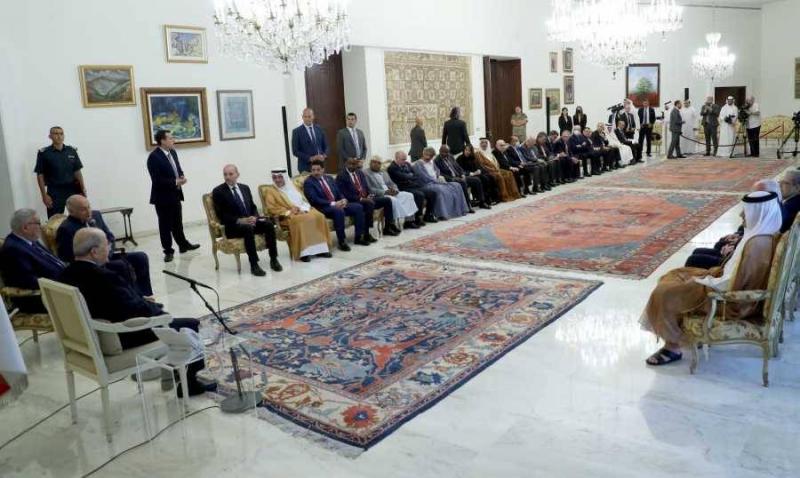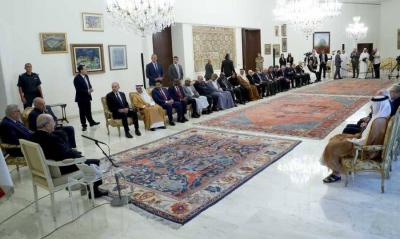Political circles, in a statement to Al-Rai newspaper in Kuwait, considered that the consultative meeting appeared to be more of a protocol in nature, given the level of Arab and Gulf participation, where fewer than half of the 21 countries were represented by foreign ministers. Four foreign ministers from the Gulf Cooperation Council were absent, while the attendance of Kuwait's Foreign Minister, Ahmad Nasser, was driven by several considerations, including Kuwait's role as a facilitator of the Gulf-Arab-international initiative to reconnect Lebanon with the Gulf states following a stormy crisis that lasted for months, under 12 clauses that Beirut is still testing. The participation of Qatari Foreign Minister Mohammed bin Abdulrahman Al Thani was preceded by an announcement from Doha to support the Lebanese army with $60 million.
The circles noted that the implications of the absence of most foreign ministers from the meeting, which did not address the Hezbollah issue and its weapons, cannot be overlooked. This was also seen as an indication that what is required from Lebanon in this regard is now known, and it remains to be seen how to regain Gulf support, specifically for the state, in light of the challenges it faces, which require a common Arab-international framework through an incomplete agreement with the International Monetary Fund, which will need guaranteed assistance from donor countries to be activated.




